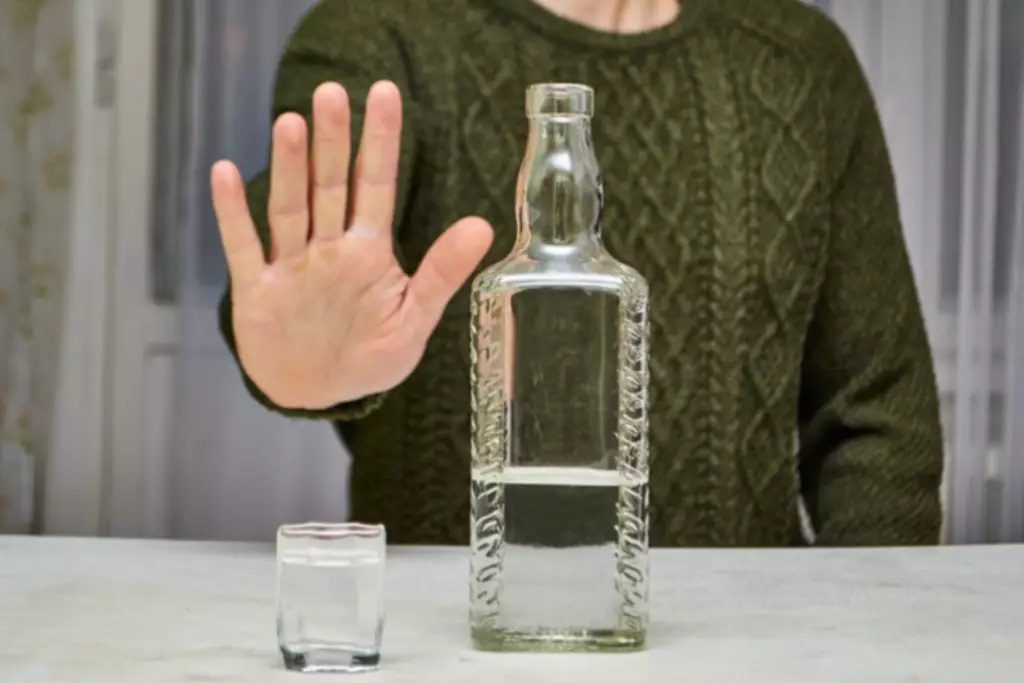The Dopamine System in Mediating Alcohol Effects in Humans SpringerLink
The dopamine deficiency hypothesis is supported by a study showing decreased dopamine receptor gene expression after several months of voluntary alcohol drinking [103]. In addition, microdialysis studies in freely moving outbred rats show a decreased dopamine output in the NAc, compared to age‐matched alcohol‐naïve controls, following 7 weeks [104] and 10 months [29] of voluntary alcohol consumption. Furthermore, after 10 months of drinking, a blunted dopamine response following a systemic alcohol challenge has been found in long‐term drinking, compared to alcohol‐naïve rats [29]. These results indicate that long‐term drinking attenuates the responsiveness of the system to external dopamine stimulation, in addition to decreasing baseline levels of dopamine. Pavlovian conditioned responses to alcohol cues in rodents provide a model of alcohol AB that allows direct measurements and mechanistic manipulations of the neural circuitry underlying AB [20,21,22].
Interactions With Dopamine
As part of a collaborative effort examining the effects of long-term alcohol self-administration in rhesus macaques, we examined DS dopamine signaling using fast-scan cyclic voltammetry. We found that chronic alcohol self-administration resulted in several dopamine system adaptations. Following long-term alcohol consumption, male macaques, regardless of abstinence status, had reduced dopamine release in putamen, https://ecosoberhouse.com/ while only male macaques in abstinence had reduced dopamine release in caudate. In contrast, female macaques had enhanced dopamine release in the caudate, but not putamen. Dopamine uptake was also enhanced in females, but not males (regardless of abstinence state). We also found that dopamine D2/3 autoreceptor function was reduced in male, but not female, alcohol drinkers relative to control groups.
Effects of Serotonin Uptake Inhibitors
Reframe supports you in reducing alcohol consumption and enhancing your well-being. Understanding the connection between dopamine and alcohol could inspire us to make more informed decisions about our drinking habits. Dopamine is released in our brains during happy, contented moments, whether we’re enjoying a favorite meal, laughing with our friends, or feeling satisfied after accomplishing a goal. This dynamic neurotransmitter is essential to our overall well-being and mental health, and it’s integral to learning, regulating mood, and making memories. Bayview Recovery Center provides varying levels of care with a focus on outpatient treatment programs at our Tacoma, WA drug rehab center. Our treatment methods allow our clients to have the most accessible and effective recovery experience possible.
Interactions Between Serotonin and Other Neurotransmitters
She single-handedly inspired me to undertake this task and the work would not have borne fruition without her support and guidance. Thanks are also due to my mother, Dr. Sharmila Banerjee, without whose support and editorial help, I could not have had the will to complete this work. Furthermore, I would like to state that no financial aid in any form was received for undertaking this work. It is classified as a catecholamine (a class of molecules that serve as neurotransmitters and hormones).
- Many factors probably determine whether GABAA receptors respond to short-term alcohol exposure (Mihic and Harris 1995).
- There is a wide range of such compounds, and here, we will only mention a few, specifically targeting glycine receptors and nAChRs, with a clear interaction with dopamine transmission in the mesolimbic dopamine system [64].
- Alcohol interferes with the brain’s communication pathways, disrupting the delicate equilibrium of our neurological functions.
- All of them function both individually and interactively as G-protein coupled receptors.
What Alcohol Really Does to Your Brain

The abilities of different addictive drugs to enable long-term potentiation and facilitate habit formation via dopaminergic mechanisms should be compared in future studies. SSRI’s also are useful in treating anxiety, depression, and other mood disorders that result at least in part from dysfunctional serotonergic signal transmission in the brain (Baldessarini 1996). Accordingly, drugs that target serotonergic signal transmission may reduce alcohol consumption partly by improving the co-occurring psychiatric problems and thus eliminating the need for self-medication with alcohol.
Although the study of neural integration is in its infancy, enough has been learned to help guide future research. This article suggests mechanisms by which alcohol consumption alcohol and dopamine may affect multiple neurotransmitter systems to influence behavior. Over time, with more drinking, the dopamine effect diminishes until it’s almost nonexistent.
Without alcohol, our dopamine levels (and hedonic setpoint) remain at a healthy baseline. This means we need to drink more alcohol to get the same effect, sending us down the road to dangerous drinking habits or perhaps misuse. As we continue a pattern of habitual drinking, the brain gets used to the new normal of getting its dopamine externally — and having too much of it. Eventually, as the brain tries to balance itself, the same amount of alcohol no longer results in the same level of dopamine release in the brain.
- However, in human Positron Emission Tomography (PET) studies, caffeine increases D2/D3 receptor availability in the ventral striatum, suggesting caffeine alone does not directly increase dopamine levels in this region [167].
- The dopamine (DA) system in the CNS includes the nigrostriatal pathway, the mesolimbic pathway and the tuberoinfundibular pathway.
- We are passionate about sharing the process involved in living a drug and alcohol-free life.
- These observations indicate that alcohol stimulates the activity of endogenous opioid peptides, leading indirectly to the activation of dopaminergic neurons.
- A so-called “happy” neurotransmitter, dopamine is involved in memory, mood, motivation, and movement.
What supplements raise dopamine levels?
Are You Addicted to Social Media? – Lee Health
Are You Addicted to Social Media?.
Posted: Mon, 06 Dec 2021 08:00:00 GMT [source]
The review paper will give an overview of the neurobiology of alcohol addiction, followed by detailed reviews of some of the recent papers published in the context of the genetics of alcohol addiction. Furthermore, the author hopes that the present text will be found useful to novices and experts alike in the field of neurotransmitters in alcoholism. We used a double-blinded, within-subjects, counter-balanced design consisting of two laboratory visits of ~8 h each; visits were separated by ≥72 h. Following screening, participants were given up to 30 min to consume the amino acid-containing beverage (see “Dopamine Depletion Procedure”). Participants were dismissed after being offered a high protein snack and were compensated for participation after completing the second visit.
- Motivational arousal varies over time and, in resting animals, determines when a previously sated animal starts to become hungry and interested in seeking food.
- In a resting animal, the release of dopamine is detected historically by microdialysis [58].
- Addictive drugs, while usually not serving as an external stimulus, have varying abilities to activate the dopamine system; the comparative abilities of different addictive drugs to facilitate LTP is something that might be studied in the future.
- It affects several neurological pathways and causes significant changes in the brain.
